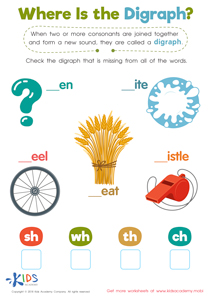Beginning Consonants Worksheets for Ages 6-8
15 filtered results
-
From - To
Discover our engaging Beginning Consonants Worksheets designed specifically for children aged 6-8! These interactive activities help young learners recognize and practice consonant sounds at the start of words, enhancing their phonemic awareness and reading skills. Each worksheet incorporates fun illustrations and examples to make learning enjoyable and effective. With a variety of exercises, including tracing, matching, and coloring, these resources are perfect for both classroom and home use. Empower your child's literacy development with our user-friendly materials that encourage exploration and creativity. Visit our website today to access these fantastic worksheets and support your child's journey into reading!
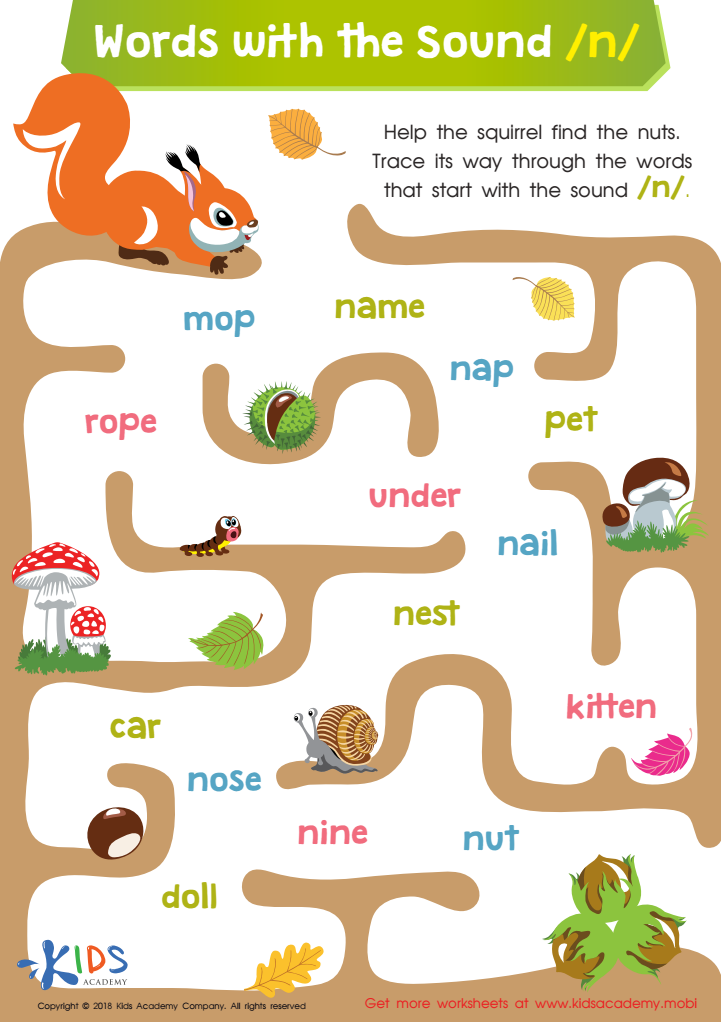

Words with Sound N Reading Worksheet
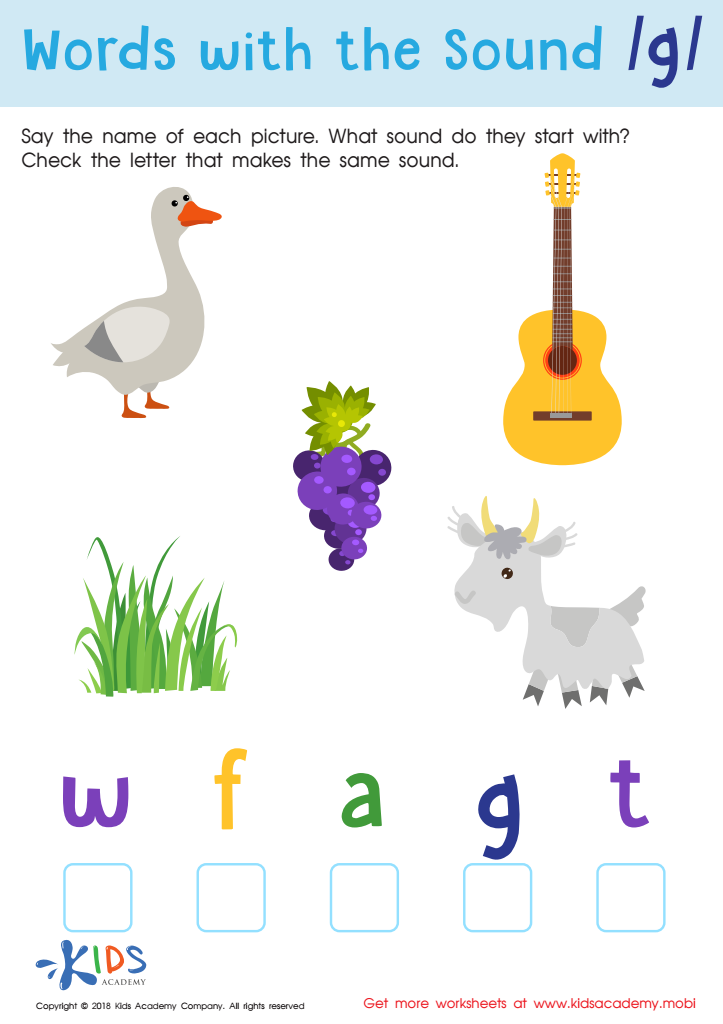

Words with sound g Reading Worksheet


Vowel and Consonant Sounds: Assessment Worksheet
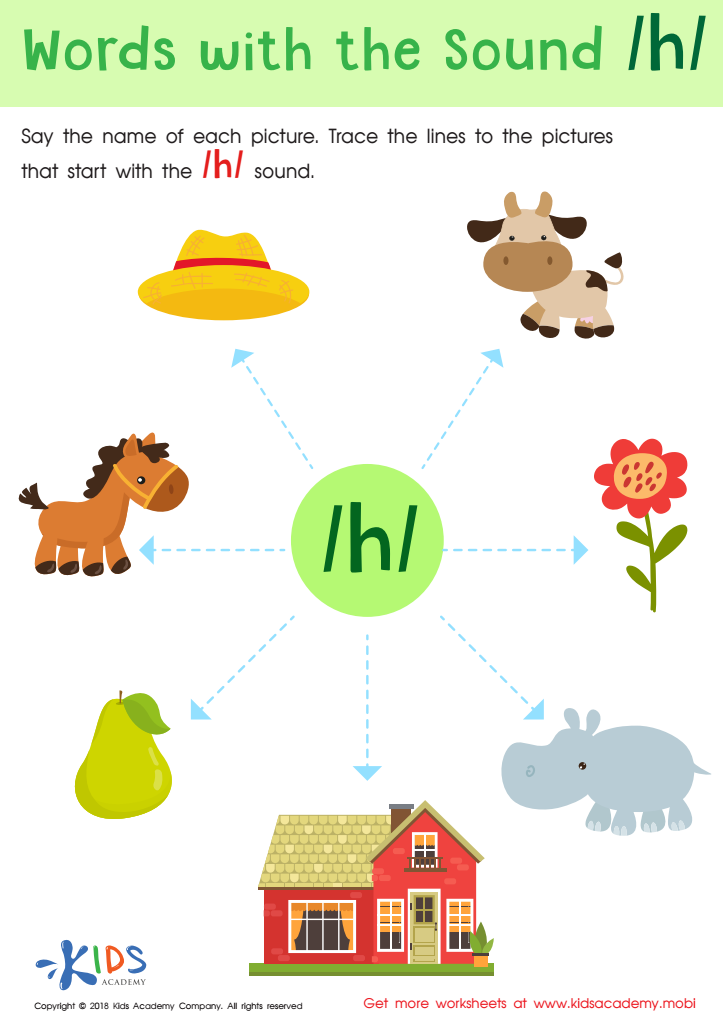

Words with sound h Reading Worksheet


Twin Onset Worksheet
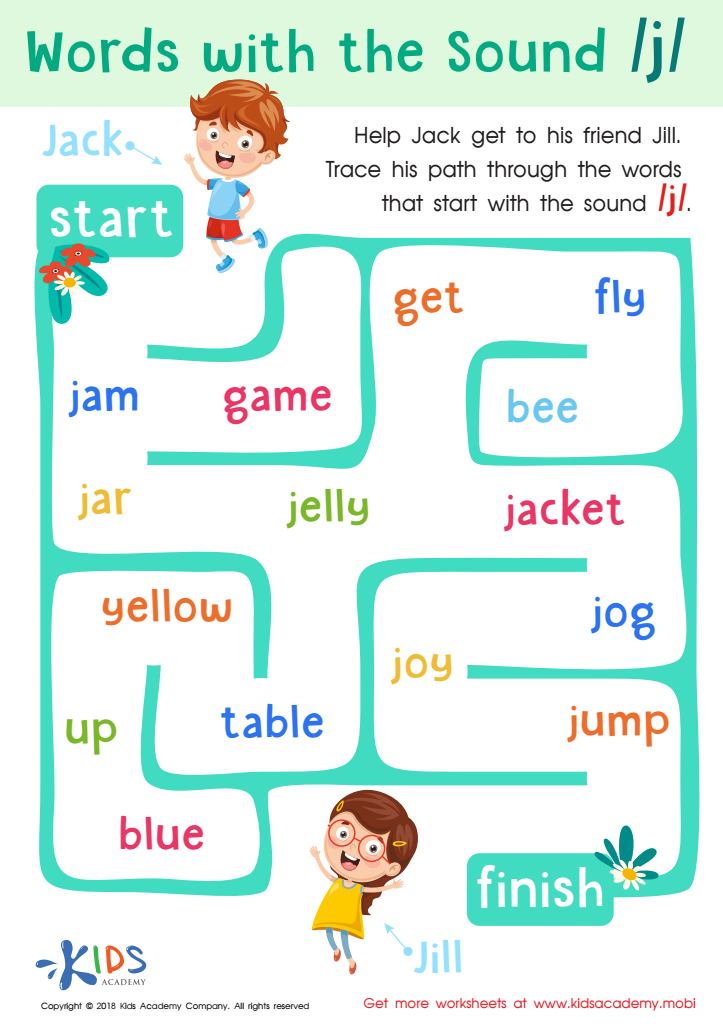

Words with sound j Reading Worksheet
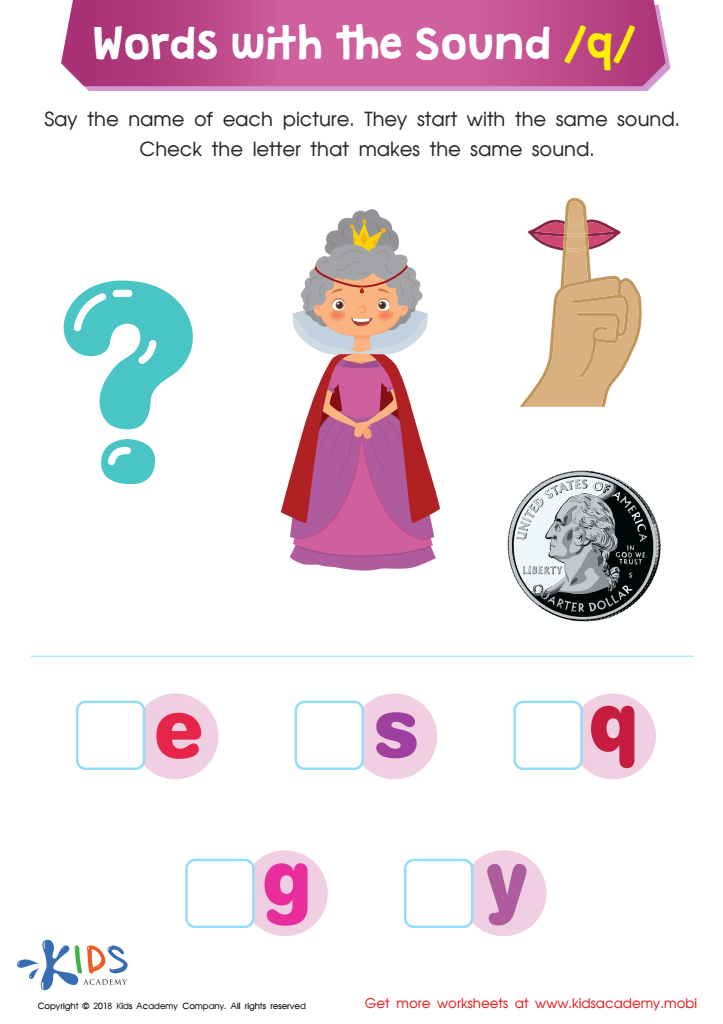

Words with Sound Q Reading Worksheet
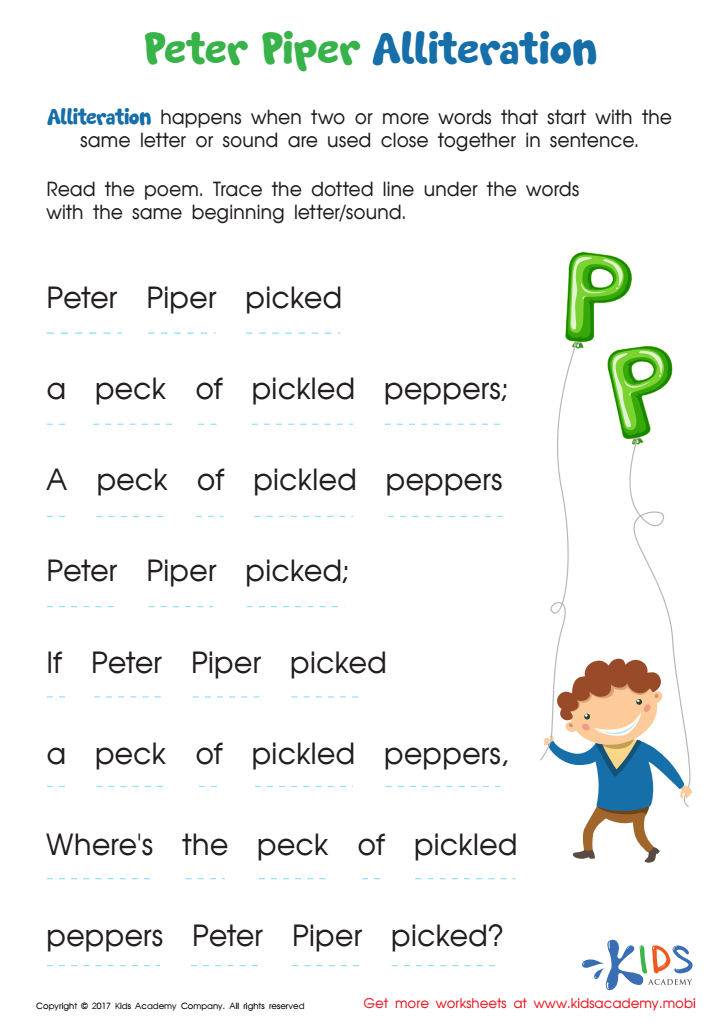

Peter Piper Alliteration Worksheet
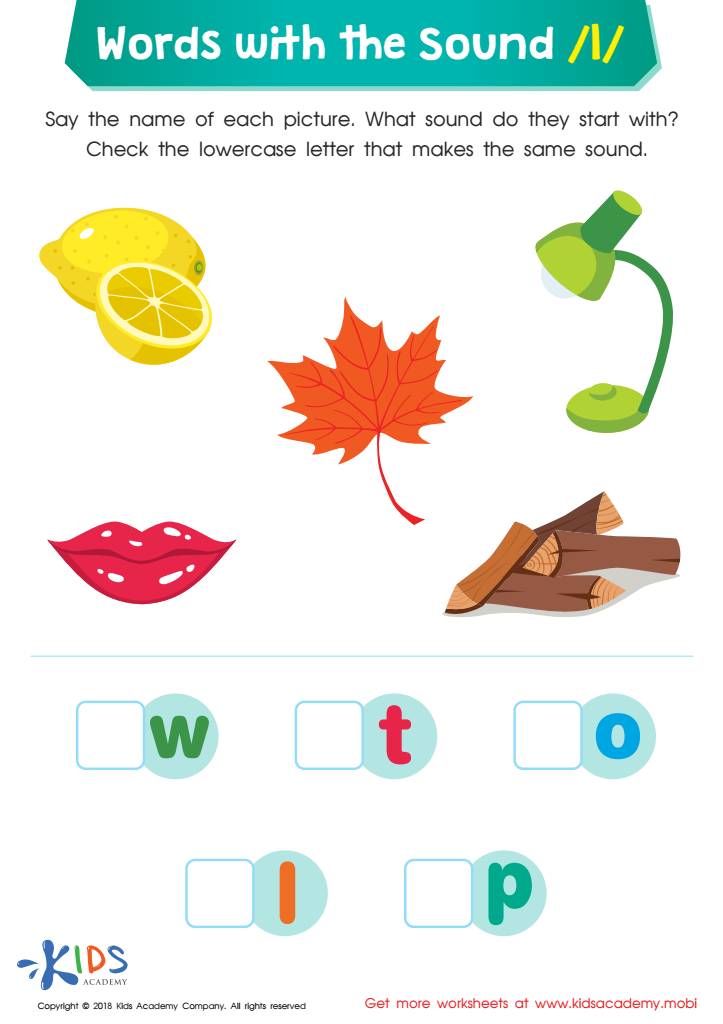

Words with Sound L Reading Worksheet
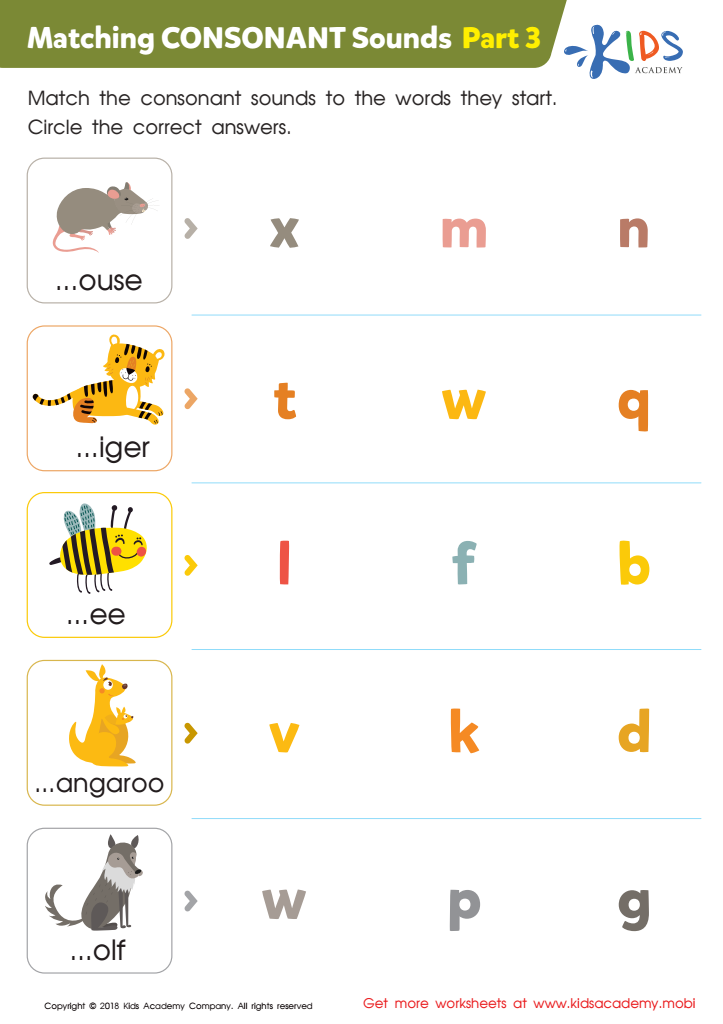

Matching Consonant Sounds: Part 3 Worksheet


Words with sound p Reading Worksheet
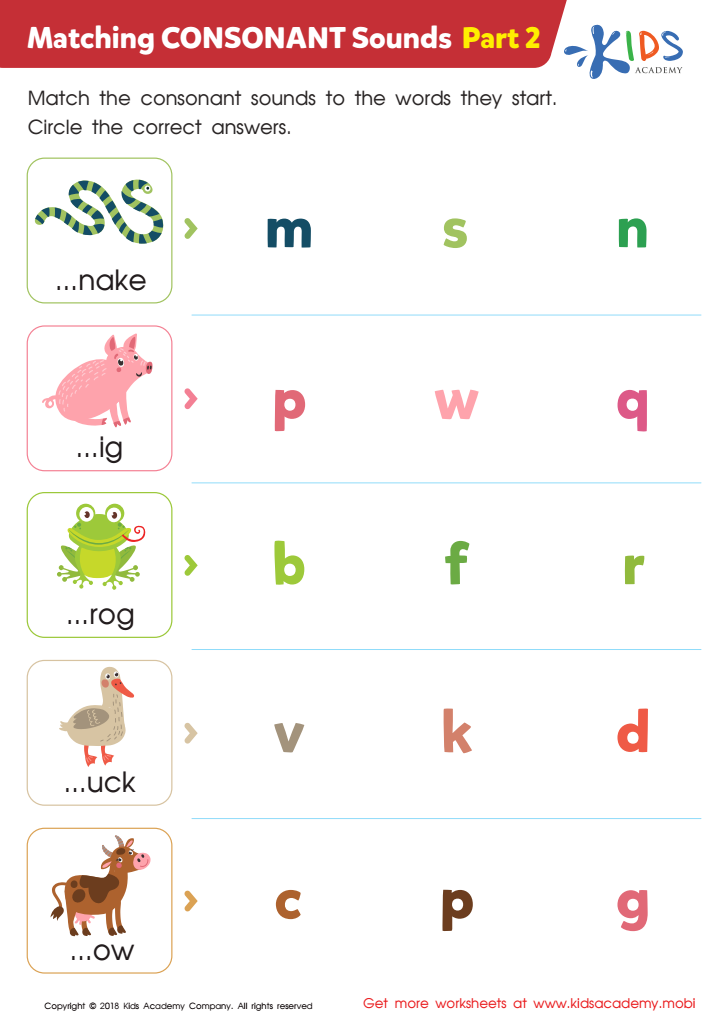

Matching Consonant Sounds: Part 2 Worksheet


Words with sound f Reading Worksheet
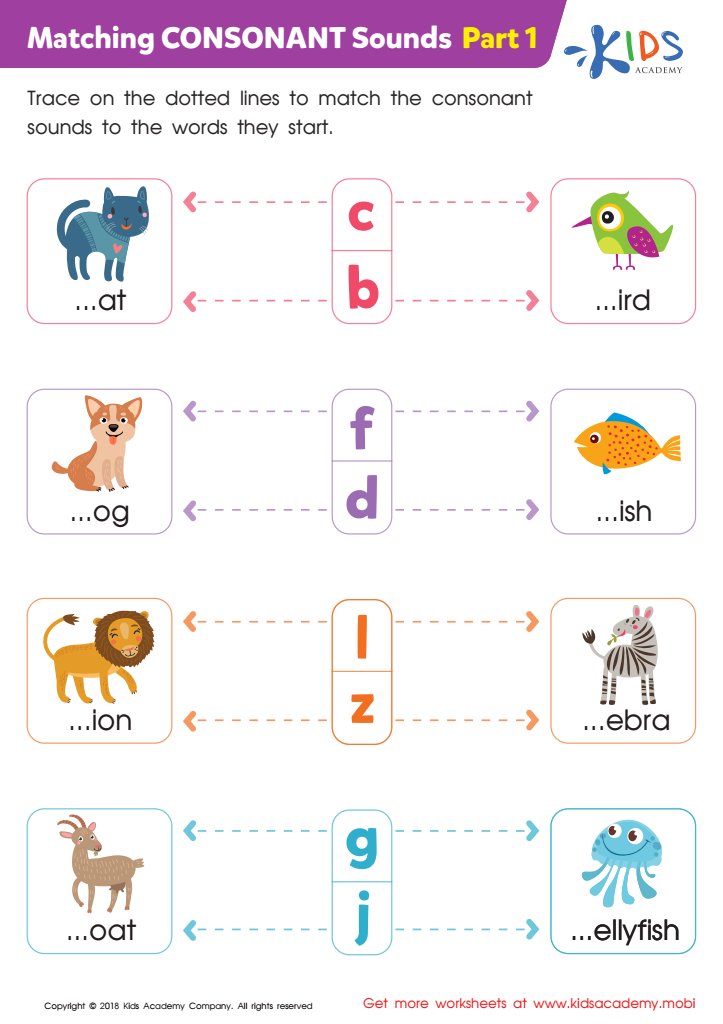

Matching Consonant Sounds: Part 1 Worksheet
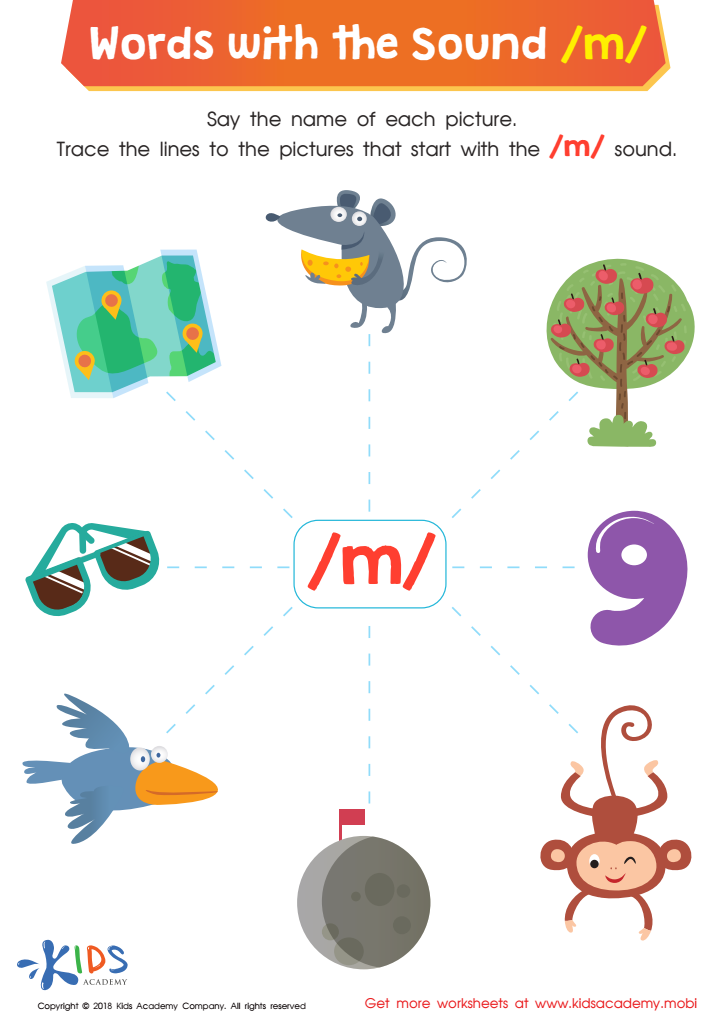

Words with Sound M Reading Worksheet
Beginning consonants are crucial for early literacy development in children aged 6-8. Mastering these sounds allows young learners to decode and pronounce words accurately, enhancing their reading fluency. When children recognize and produce beginning consonants, they build a strong foundation for phonemic awareness, which is essential for spelling and writing. Moreover, engaging with beginning consonants helps children develop their vocabulary, as they learn to associate sounds with corresponding letters and spellings.
Parents and teachers should care about this aspect of language learning because it directly impacts students' confidence and enthusiasm for reading. Proficiency in beginning consonants can lead to improved comprehension skills, enabling children to understand stories and concepts better. Furthermore, fostering a strong grip on these sounds encourage children to take greater initiative in their writing, leading to more creative expression and improved communication skills.
By actively supporting children in recognizing and practicing beginning consonants through games, rhymes, and everyday conversations, parents and teachers can cultivate a love for language and reading. This strong foundation paves the way for lifelong learning, equipping children with essential skills for academic success and personal growth. Early intervention in this area creates a solid stepping stone toward future literacy achievements.
 Assign to My Students
Assign to My Students


